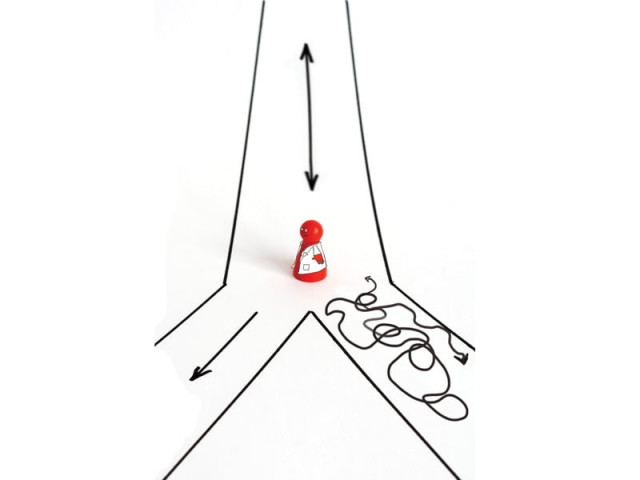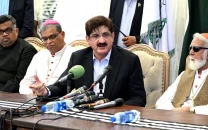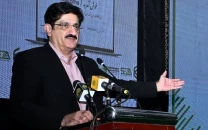Medical specialisations: Karachi doctors choose gynaecology over forensics
Students are ‘wary’ of specialising in the area, say experts.

Most doctors cannot decide on their specialisation until their last year of medical school and some can’t even make up their minds until their house jobs are over. But judging the trend of choosing, a dearth in certain crucial areas is imminent — especially community and forensic medicine.
A study titled “Specialty Choices of Medical Students and House Officers in Karachi, Pakistan” published in the Eastern Mediterranean Health Journal in January 2011 ranked internal medicine as the most-opted choice, followed by paediatrics, then general surgery and obstetrics and gynaecology.
A total of 850 students of two public — Dow University of Health Sciences and Sindh Medical College — and two private — Aga Khan University Hospital and Ziauddin University — medical institutions were interviewed. Even school curriculum and teaching methods were studied.
About 71.5 per cent of the sample was male. Out of the 28.5 per cent female participants, most of them were enrolled in private medical institutions.
Reasons behind the choices
National Institute of Child Health director Dr Jamal Raza believes the high female enrolment - between 80 and 90 per cent in medicine - is the primary reason behind the popularity of paediatrics as a specialisation. “It’s also probably because women do not want to go into very intensive fields such as major surgeries,” he said. Another reason may be the availability of short-term diploma courses in the field as some students may not want to “go for a major degree”. Similar diplomas are not available for specialisation in adult medicine.
According to Dr Shereen Bhutta, head of obstetrics and gynaecology at Jinnah Postgraduate Medical Centre, obstetrics and gynaecology has traditionally been an important field for women. Secondly, there is a prevalent desire among women in the field to improve the lives of other women, she explained.
No to forensic medicine?
Associate professor and head of the department of forensic medicine at Ziauddin University, Dr Qudsia Hassan, lists a number of reasons why students are “wary” of specialising in this area.
The inclusion of law in the practical aspect of this type of medicine is the most important reason. “One practising in this field needs to frequently go to court to present evidence for cases which is why women, in particular, steer clear of it.”
There is no support from the government for jobs in forensic medicine. “How will this important field lure students without proper incentives and training?” Hassan argues. She points out the “excessive political pressure” exerted on forensic professionals. “A small example is of a patient with a head injury. If it is a simple cut, there is no criminal offence. However, if the bone is exposed then it’s a potential criminal case,” she explains. In such cases, professionals are often “bribed or coerced” into falsely reporting exposure of the bone.
Hassan summarises the problem: We are in total chaos, she says, with too much pressure from all sides. In comparison, students find other fields hassle-free and more lucrative in the long run.
There is no uniform system in place on how a forensic department is meant to function and the extent of its responsibilities, she claims. In Karachi, for example, private forensic doctors are not permitted to conduct autopsies or any other medico-legal work. This is all under the domain of the Police Surgeon Office.
Hence, doctors are left with restricted options like just teaching the subject — which is also embedded with problems. “In the private sector specially, most doctors study to eventually practice and settle abroad. Many universities either limit forensics to a course or simply scrap it from the undergraduate curriculum altogether. AKUH, for example, does not have a forensic department. They simply teach the subject under microbiology,” says Hassan.
Family medicine
Students do not even enrol in family medicine simply because they do not know much about it, explains AKUH department of family medicine chairman Dr Waris Qidwai. “Family medicine is a new speciality with its first fellowship examination conducted in 1997. Therefore, many students are unaware about the prospects and the potential of this field,” he says.
However, Qidwai strongly believes that family medicine is the “speciality of the future” as its cost-effective care is just what is needed in these inflationary times, both in Pakistan and abroad.
Published in The Express Tribune, March 28th, 2011.



















COMMENTS
Comments are moderated and generally will be posted if they are on-topic and not abusive.
For more information, please see our Comments FAQ